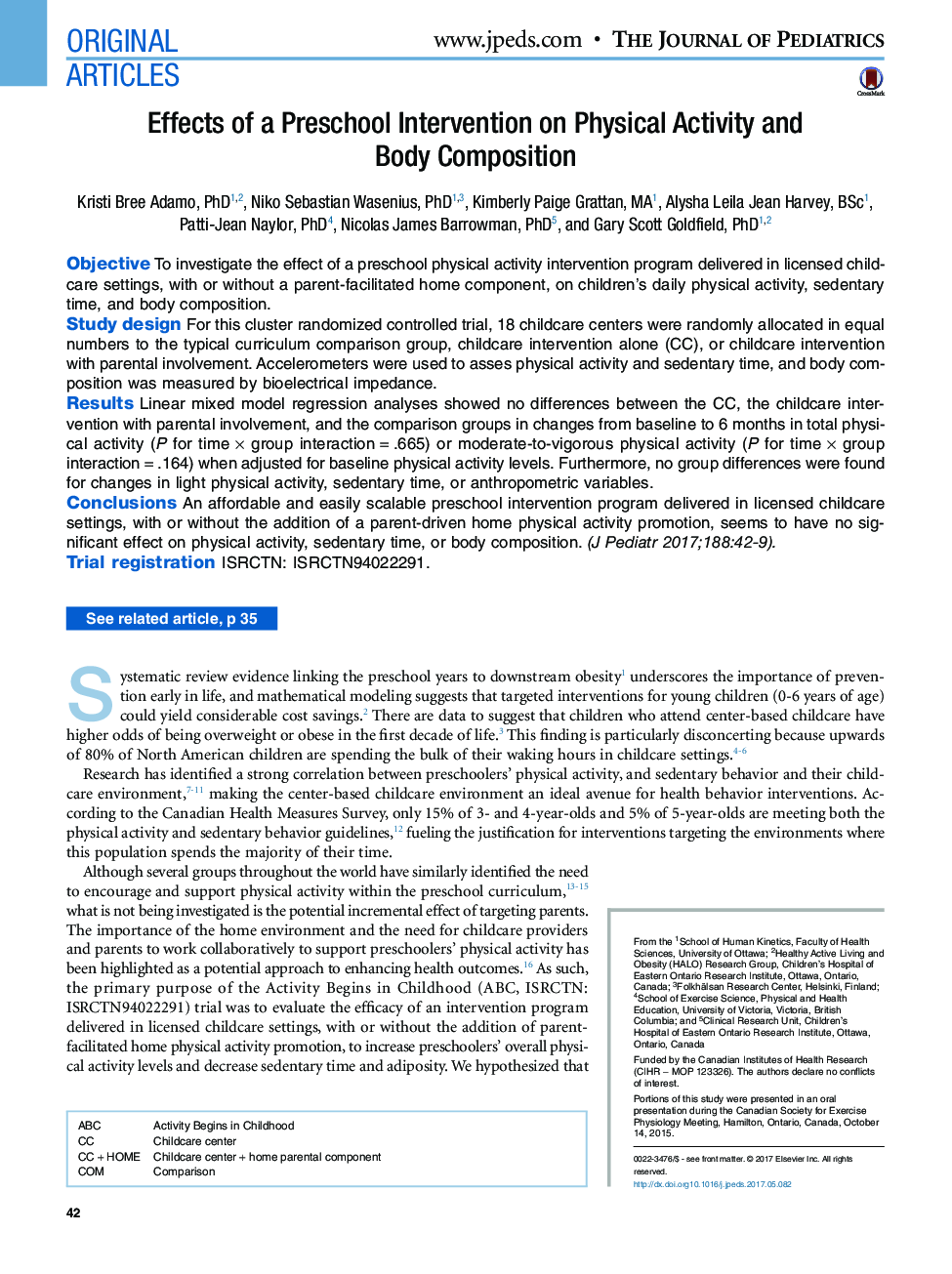| Article ID | Journal | Published Year | Pages | File Type |
|---|---|---|---|---|
| 5718944 | The Journal of Pediatrics | 2017 | 10 Pages |
ObjectiveTo investigate the effect of a preschool physical activity intervention program delivered in licensed childcare settings, with or without a parent-facilitated home component, on children's daily physical activity, sedentary time, and body composition.Study designFor this cluster randomized controlled trial, 18 childcare centers were randomly allocated in equal numbers to the typical curriculum comparison group, childcare intervention alone (CC), or childcare intervention with parental involvement. Accelerometers were used to asses physical activity and sedentary time, and body composition was measured by bioelectrical impedance.ResultsLinear mixed model regression analyses showed no differences between the CC, the childcare intervention with parental involvement, and the comparison groups in changes from baseline to 6 months in total physical activity (P for time à group interactionâ=â.665) or moderate-to-vigorous physical activity (P for time à group interactionâ=â.164) when adjusted for baseline physical activity levels. Furthermore, no group differences were found for changes in light physical activity, sedentary time, or anthropometric variables.ConclusionsAn affordable and easily scalable preschool intervention program delivered in licensed childcare settings, with or without the addition of a parent-driven home physical activity promotion, seems to have no significant effect on physical activity, sedentary time, or body composition.Trial registrationISRCTN: ISRCTN94022291.
